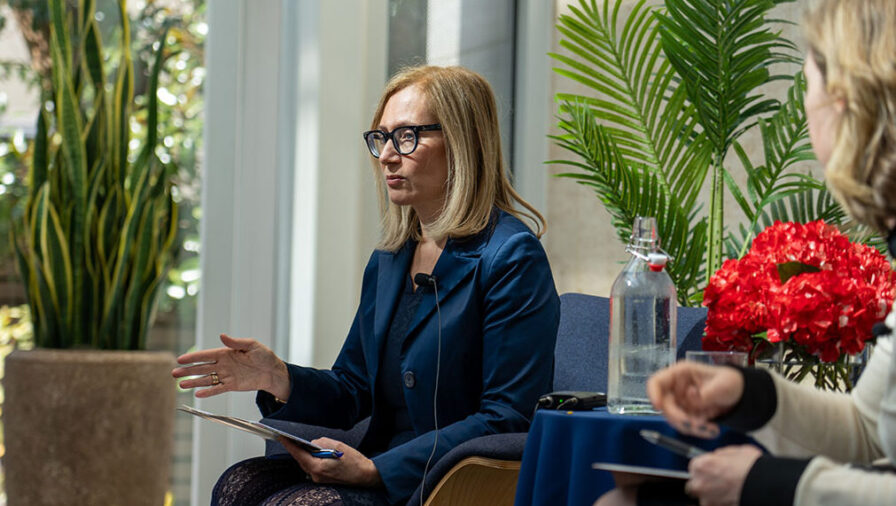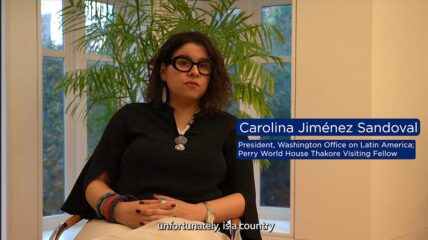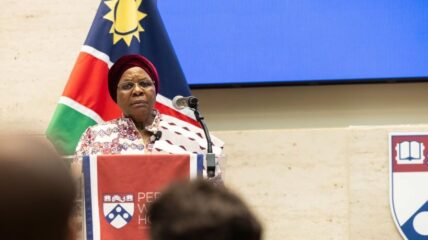After a “super year” of elections in 2024 – more than 1.6 billion people cast ballots in 74 national elections globally – many are spending 2025 assessing the health of democracy around the world. The early returns are worrisome. In many places autocratic leaders are tightening their grip on power and democratic backsliding seems to be on the rise globally. At the same time, political and media repression – both at the national and international level – continue to grow as autocrats crack down on civil society and seek to coopt media institutions.
Against this backdrop Perry World House convened a conference on democracy, media, and repression on February 25-26, 2025. Bringing together leading scholars, journalists, and researchers from five continents – including Perry World House Distinguished Visiting Fellows Ruth Ben-Ghiat, Des Freedman, and Francisco Sagasti, and experts like Peter Pomerantsev, Marites Vitug, and Walter H. Annenberg Dean Sarah Banet-Weiser, among nearly two dozen others – participants explored the role of media institutions in democracies and analyzed what steps governments, civil society, and journalists can take to build resilience to foreign information manipulation and interference.
There is no easy fix. But participants agreed that concerted effort across the spectrum – from re-establishing hyper-local journalistic initiatives to building incentives for collaboration and cooperation at the international multilateral level – can help. Other ideas like improving media literacy, fostering collaboration between technology platforms and governments, and establishing democratic public media, could lessen societies’ vulnerability to information manipulation and foreign interference.
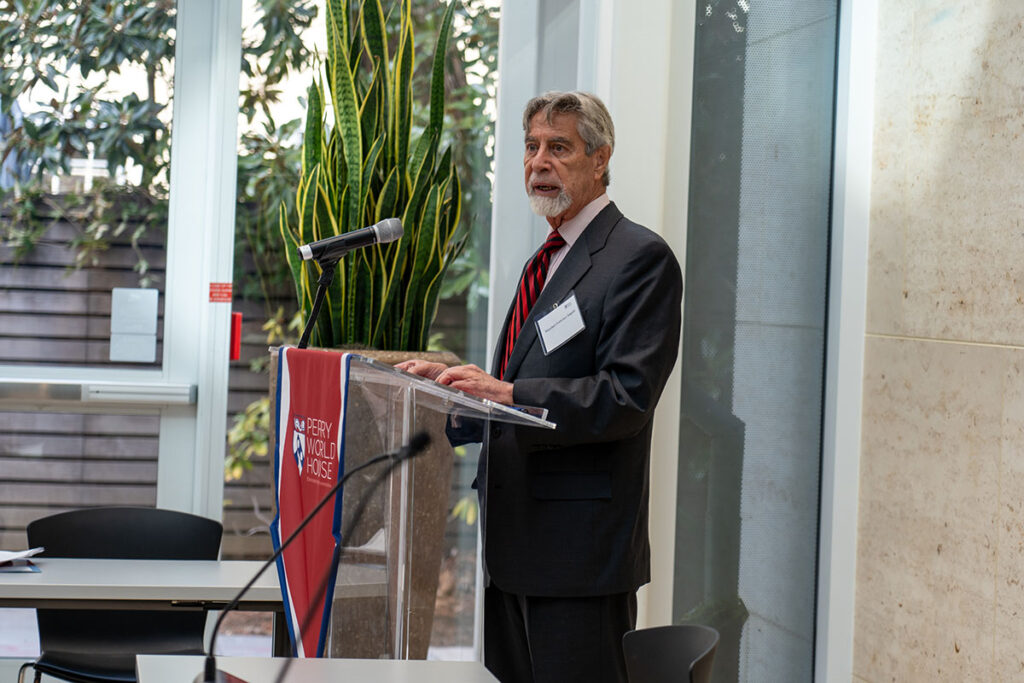
President Francisco Sagasti delivering the conference’s opening remarks
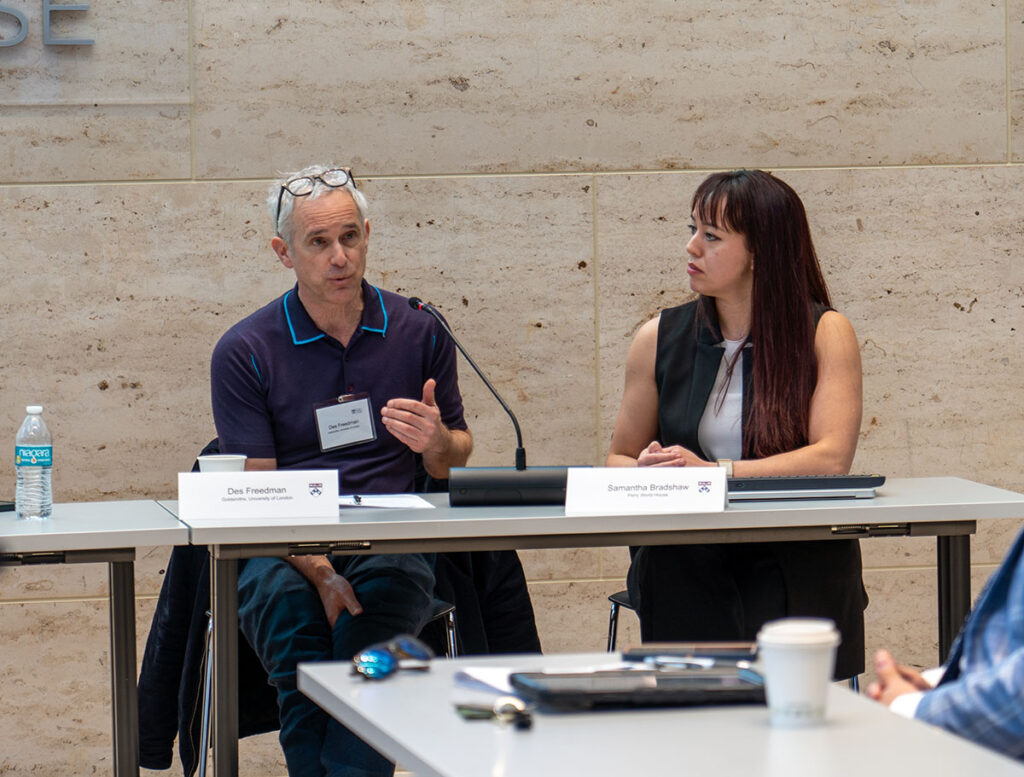
Perry World House Distinguished Visiting Fellow Des Freedman
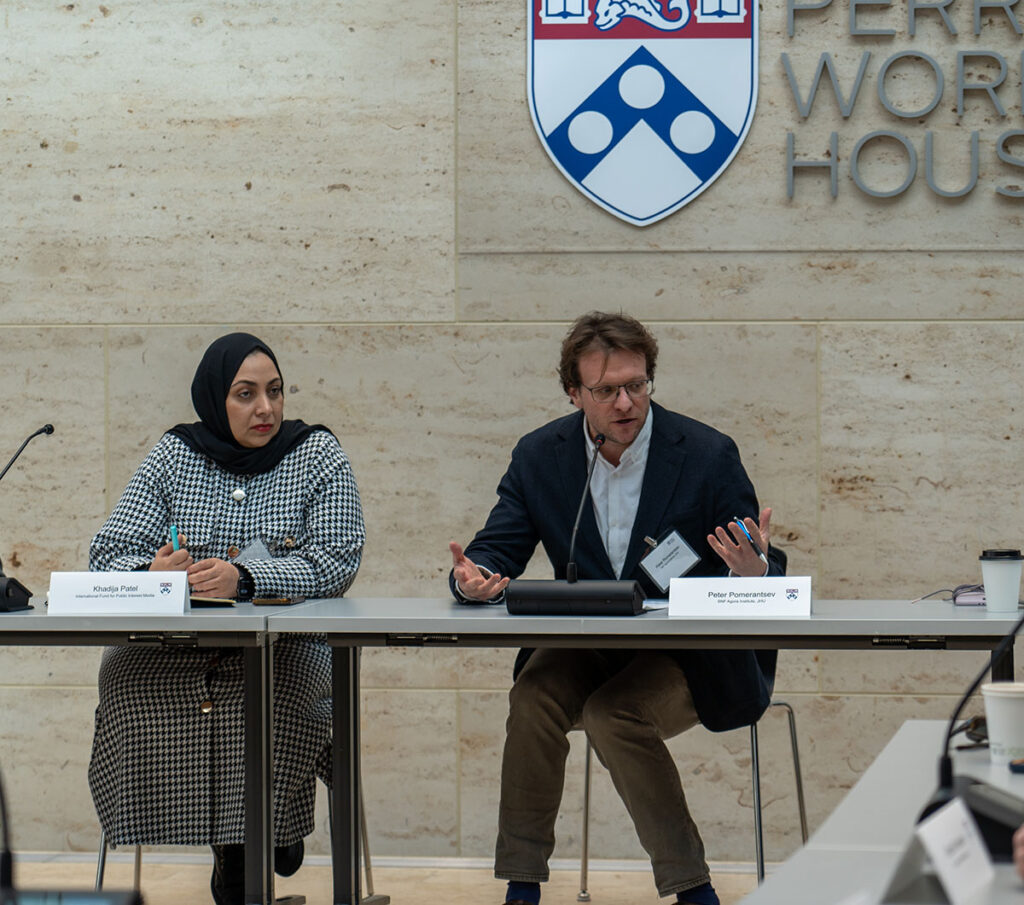
Peter Pomerantsev, Senior Fellow at Johns Hopkins University’s SNF Agora Institute
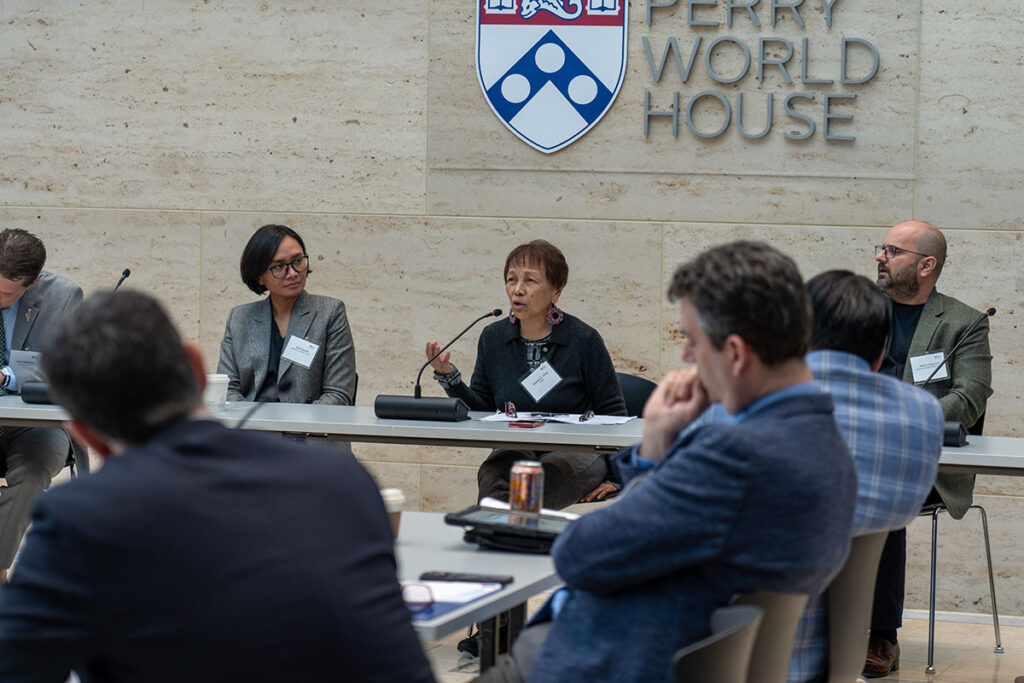
Marites Vitug, Editor-at-large of Rappler


